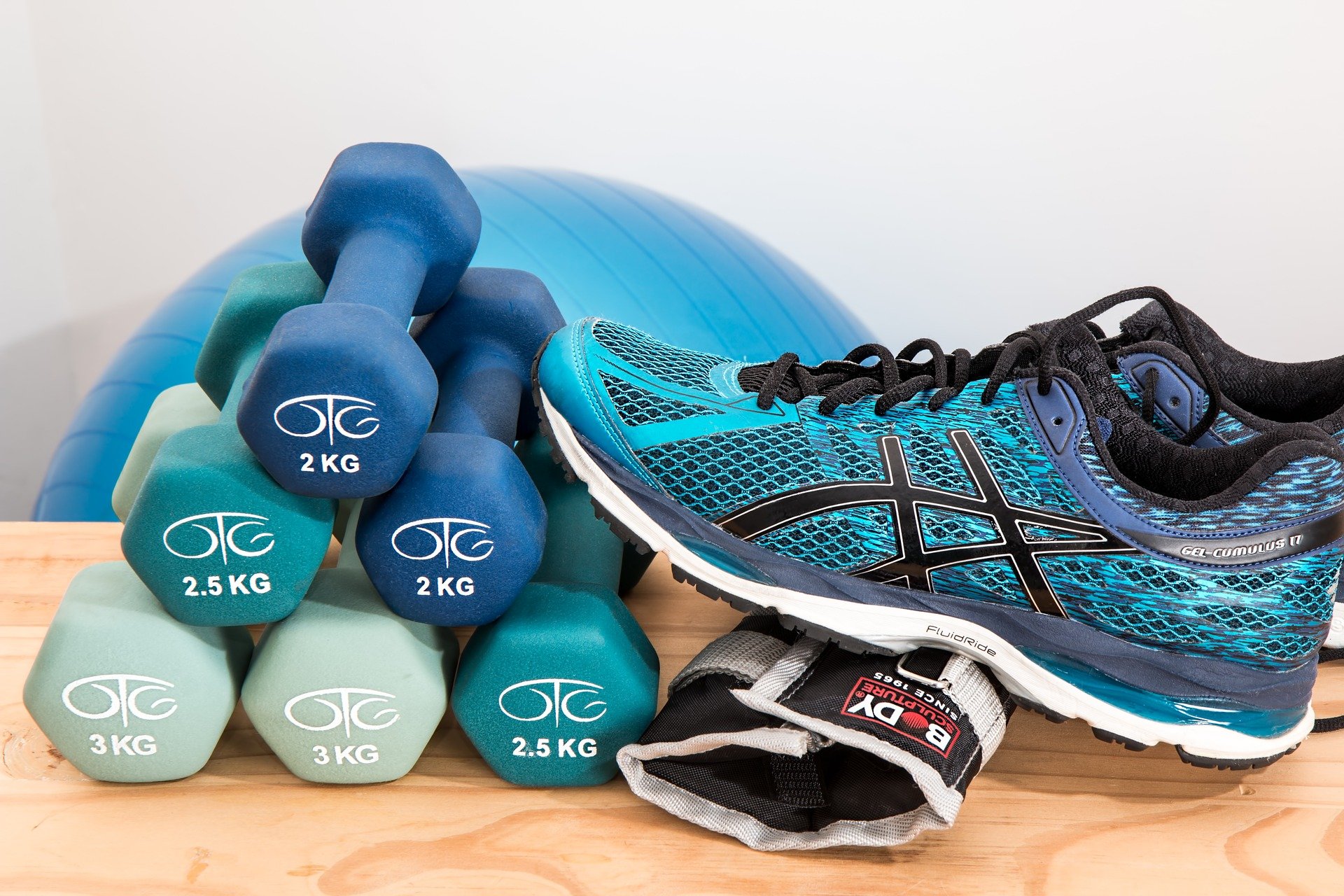PILLAR 1: PHYSICAL WELLBEING SUPPORT
Exercise
'You're only one workout away from a good mood' - Unknown

Exercise creates so many benefits, not only can it make you feel absolutely incredible, it can also reduce your risk of coronary heart disease, strokes, type 2 diabetes and cancer. By participating in exercise you can lower your risk of early death by up to 30% (NHS, 2021).
Exercise and mental health benefits include:
- Boosts brain power: Various studies have shown that cardiovascular exercise can create new brain cells (aka neurogenesis) and improves overall brain performance.
- Increases relaxation: For some, moderate workouts can have the aftereffects equivalent of a sleeping pill, even for people with insomnia.
- Sharpens memory: Regular physical activity boosts memory and the ability to learn new things by increasing production of cells in the hippocampus responsible for memory and learning.
- Alleviate anxiety: The feel-good hormones released during a workout can help us feel calm.
- Prevents cognitive decline: Diet and exercise can help shore up the brain against cognitive decline.
- Allows you to enjoy the great outdoors: Vitamin D acquired form soaking up the sun can less the likelihood of experiencing depressive symptoms, what a wonderful excuse to get those walking boots on!
- Improves self-confidence: On a very basis level, physical fitness can boost self-esteem and improve positive self-image.
- Boosts happy chemicals: Exercise releases endorphins which create feelings of happiness and euphoria. Studies have shown that exercise can even alleviate symptoms amongst the clinically depressed.
Ways to adopt good exercise habits:
- Make time for exercise
- Find an exercise buddy
- Start slowly
- Find something you really enjoy doing i.e. yoga, dancing, spin
- Set goals so you have something to aim for
- Mix up your routine - they say variety is the spice of life after all!
- Track your activity
- Forget the 'all or nothing' mentality - look at each day as a series of choices.
- Increase opportunities to get active i.e. take the stairs instead of using lifts, walk during your lunch break.
- Make it fun, exercise doesn't have to be serious business!
- Plan your exercise, as the wise say 'fail to plan is planning to fail'
Helpful signposts where you can find out more:
Sleep
'Sleep is the best meditation' - Dalai Lama

Sleep is crucial for us humans to survive and when we don't have a good night's sleep, we feel absolutely awful. We spend a whooping third of our lifetime asleep and good restorative sleep is key to support our wellbeing. Sleep is the first thing to be affected when we are experiencing poor mental health. Here are the benefits of sleeping well:
- Increased energy levels
- Increased mental clarity, memory and brain function
- Starting the day feeling refreshed
- Increased resilience to pressure
- Slows down the ageing process
- Helps the body to repair
- Keeps you feeling happy and motivated
- Reduced stress, illness and disease
Here are some top tips to help you support your sleep routine:
- It sounds obvious, but the first tip is to allow yourself 7-9 hours to sleep - for example, if you are going to bed at 2 am and wanting to get up at 7 am, you will never get close to sleeping your full quota. Allow yourself enough time to schedule in sleep.
- Ensure that you reduce any blue light exposure 2 hours before you go to bed, this means putting your phone or tablet device on sleep mode which changes the type of light it emits.
- Don't consume caffeine too late in the day.
- Optimise your bedroom environment so it feels comfortable, calm and sleep ready. Factors to support sleep hygiene include temperature of bedroom, the brightness, the arrangement of the room, tidiness, and noisy levels.
- Have a pre-bedtime routine that incorporates relaxation such as having a warm bath or meditation.
- Avoid napping during the day (especially when at work, ha!)
- Exercise regularly but not before bed because this can create sleep problems because of the stimulatory effect of exercise.
- Did you know that the colour of your bedroom can also impact upon your sleep duration? In a survey of over 2,000 UK homes, it was found that the colours blue, yellow and green helped sleepers get the most hours of sleep. (Travelodge, 2017).
Sleep is crucial to stay healthy, mentally, and physically well.
Helpful signposts where you can find out more:
Relaxation
Relaxation is a stepping stone to tranquillity – unknown

Relaxation is a great tool to use in our stress prevention toolkit to help us regulate when we are experiencing stress. Relaxation is one of the most effective ways to reduce the harmful effects of stress and get our parasympathetic nervous system to kick in to deactivate our biological stress response which is responsible for making us feel awful.
The parasympathetic nervous system is part of the autonomic nervous system. The autonomic nervous system controls the parts of us that is automatic such as breathing and sneezing. The autonomic nervous system oversees two of our physiological operating systems: The sympathetic nervous system and the parasympathetic nervous system. The sympathetic nervous system is the part of our biology that triggers fight or flight syndrome when we perceive a situation to be stressful by the release of neurotransmitters: adrenaline and noradrenaline which jump starts a sequence of reactions.
When we are experiencing this physiological reaction, it is important to reduce the effects of the stress response and relaxation is such a great way to create biological balance. Some relaxation methods that you could find useful are:
- Meditation
- Deep breathing
- Be creative
- Spend time in nature
- Visualisation
- Having a warm bath
Relaxation can also help create blissful conditions to support our sleep regime and as we described above the restorative effect of sleep helps increase our wellbeing.
Helpful signposts where you can find out more:
- MIND Relaxation Tips
- MIND Relaxation Exercises
- NHS Breathing Exercises for Stress
- Benson Relaxation Technique
